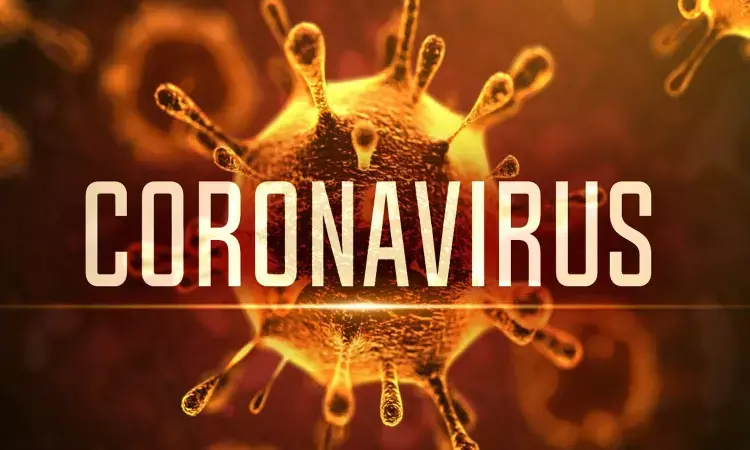- Home
- Medical news & Guidelines
- Anesthesiology
- Cardiology and CTVS
- Critical Care
- Dentistry
- Dermatology
- Diabetes and Endocrinology
- ENT
- Gastroenterology
- Medicine
- Nephrology
- Neurology
- Obstretics-Gynaecology
- Oncology
- Ophthalmology
- Orthopaedics
- Pediatrics-Neonatology
- Psychiatry
- Pulmonology
- Radiology
- Surgery
- Urology
- Laboratory Medicine
- Diet
- Nursing
- Paramedical
- Physiotherapy
- Health news
- Fact Check
- Bone Health Fact Check
- Brain Health Fact Check
- Cancer Related Fact Check
- Child Care Fact Check
- Dental and oral health fact check
- Diabetes and metabolic health fact check
- Diet and Nutrition Fact Check
- Eye and ENT Care Fact Check
- Fitness fact check
- Gut health fact check
- Heart health fact check
- Kidney health fact check
- Medical education fact check
- Men's health fact check
- Respiratory fact check
- Skin and hair care fact check
- Vaccine and Immunization fact check
- Women's health fact check
- AYUSH
- State News
- Andaman and Nicobar Islands
- Andhra Pradesh
- Arunachal Pradesh
- Assam
- Bihar
- Chandigarh
- Chattisgarh
- Dadra and Nagar Haveli
- Daman and Diu
- Delhi
- Goa
- Gujarat
- Haryana
- Himachal Pradesh
- Jammu & Kashmir
- Jharkhand
- Karnataka
- Kerala
- Ladakh
- Lakshadweep
- Madhya Pradesh
- Maharashtra
- Manipur
- Meghalaya
- Mizoram
- Nagaland
- Odisha
- Puducherry
- Punjab
- Rajasthan
- Sikkim
- Tamil Nadu
- Telangana
- Tripura
- Uttar Pradesh
- Uttrakhand
- West Bengal
- Medical Education
- Industry
Social distancing may have to remain till 2022, say Harvard researchers

"To avoid this, prolonged or intermittent social distancing may be necessary into 2022. Additional interventions, including expanded critical care capacity and an effective therapeutic, would improve the success of intermittent distancing and hasten the acquisition of herd immunity," it added.
Washington: Social distancing measures such as restrictions on public gatherings may have to remain in place intermittently for at least a couple of more years to contain the spread of COVID-19 in the absence of vaccine against the virus or dramatic increase in critical care capacities, researchers from Harvard T.H. Chan School of Public Health have warned.
These tough measures which have already pushed the world economy into recession may be necessary because the outbreak of SARS-CoV-2, the virus that causes COVID-19, may occur again in winter, according to the projections made by the researchers who used data from the US for creating a model of transmission.
The study comes at a time when US President Donald Trump has said that America has "passed the peak" of new COVID-19 cases and predicted some states would reopen this month, even as the country currently accounted for the highest number of coronavirus deaths and infections in the world.
The US has reported a total of 639,628 coronavirus cases, while the death toll stands at 30,925, according to the latest update by the Washington-based Johns Hopkins University.
According to the study published in the journal Science, resurgence in contagion could be possible as late as 2024.
For the study, the researchers examined a range of likely SARS-CoV-2 transmission scenarios through 2025 and assessed non-pharmaceutical interventions that could mitigate the intensity of the current outbreak.
They used what is known about the pandemic and different coronaviruses to create different transmission scenarios.
"We projected that recurrent wintertime outbreaks of SARS-CoV-2 will probably occur after the initial, most severe pandemic wave. Absent other interventions, a key metric for the success of social distancing is whether critical care capacities are exceeded," said the study.
"To avoid this, prolonged or intermittent social distancing may be necessary into 2022. Additional interventions, including expanded critical care capacity and an effective therapeutic, would improve the success of intermittent distancing and hasten the acquisition of herd immunity," it added.
The researchers cautioned that their model will have to be tailored to local conditions and updated as more accurate data become available.
According to data from Johns Hopkins University, COVID-19 has so far infected over 2 million people and led to the deaths of over 137,000 in the world.
Medical Dialogues Bureau consists of a team of passionate medical/scientific writers, led by doctors and healthcare researchers. Our team efforts to bring you updated and timely news about the important happenings of the medical and healthcare sector. Our editorial team can be reached at editorial@medicaldialogues.in.
Dr Kamal Kant Kohli-MBBS, DTCD- a chest specialist with more than 30 years of practice and a flair for writing clinical articles, Dr Kamal Kant Kohli joined Medical Dialogues as a Chief Editor of Medical News. Besides writing articles, as an editor, he proofreads and verifies all the medical content published on Medical Dialogues including those coming from journals, studies,medical conferences,guidelines etc. Email: drkohli@medicaldialogues.in. Contact no. 011-43720751


